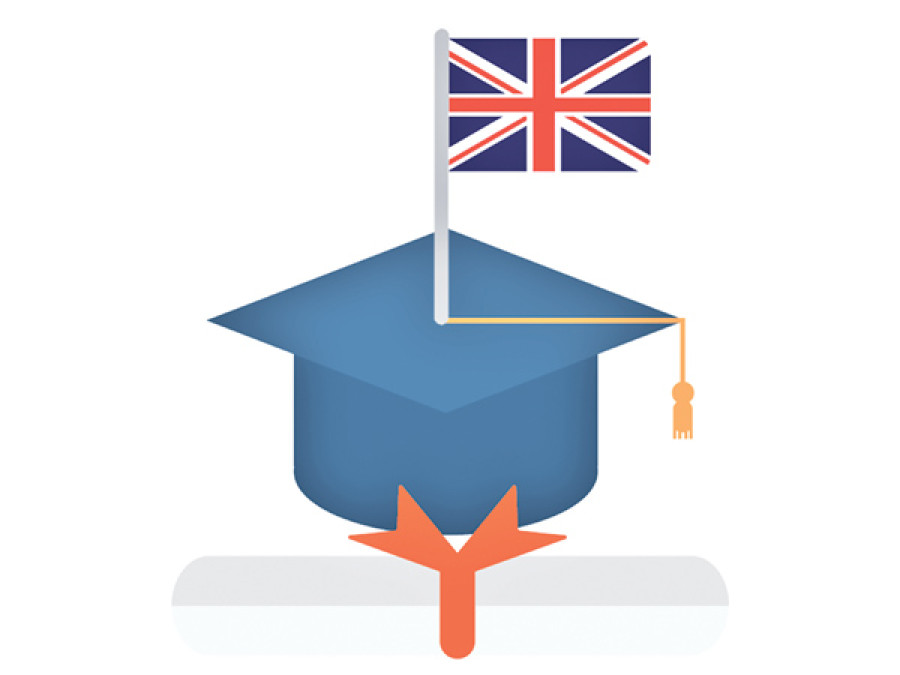Miscellaneous
Think twice
With Theresa May assuming prime ministership in the UK, Nepali students ought to stay informed about the pitfalls of the UK as educational destination
Subash Khadgi
Theresa May is set to scrutinise the number of student visas being granted to UK university applicants in a fresh attempt to reduce immigration.” A story published in The Independent on July 25 read. It is no surprise that the new Prime Minister of the UK is keen on reducing the number of international students, thanks to her record of initiating actions against international students as the Home Secretary in the past.
The extent to which the British government, particularly Theresa May’s department, the Home Office, acted to reduce the number of international students coming to the UK is no secret. Beginning from June 2014, the Home Office deported about 50,000 international students, alleging that their TOIEC, a standardised English language test, was fraught with fraudulent practices. Riding on this alleged fraud, the Home Office painted all the 50,000 international students by the same broad brush and threw them back to their home countries. Some of the deported students were from Nepal as well. Now, The Upper Tribunal (Asylum and Immigration) has decided that the then Home Secretary’s evidence included “multiple frailties and shortcomings”; and the investigation is still on-going. Nevertheless, the Conservative ideology is clear—it wants lesser international students in the UK.
This is actually not for “quality assurance” and all the sweet jargons used in UK’s Higher Education. Instead, the deportation of international students and all the legal and bureaucratic hurdles erected for this group is primarily because the UK government, since 2010, has been attempting to reduce “net migration” target, which is the difference between the number of people entering the UK and the number of people exiting. The government has aimed to bring the figures down from “hundreds of thousands” to “tens of thousands”.
Now, the point of writing this article is to let aspiring Nepali students who want to come to the UK to have an informed opinion before stepping into a perceived ‘heavenly land’. If you ask any Nepali student who has studied in a university in the UK, they are most likely to have a positive image of the education system, which provides world-class education that is held in high esteem in other parts of the world. There are a number of international students from all over the world in British universities, which makes an average Nepali student’s social experience much richer than if they had not studied here. Nevertheless, there are some downsides too. The British government in 2012 cancelled a visa type then called “Post-Study Work” (PSW) visa, which had allowed two years of working period for non-EU international students once they completed their studies.
Now, after the expiry of their student visas, the government generally wants the students to go back to their home countries without having any full time work experience. There are other avenues to stay and work in the country but they are made rigorous and difficult for an average student with little to show in their bank account. Businesses, too, blatantly resist recruiting non-EU workers, because of the legal hassles surrounding it. Barring that, until now, at least, most of the university students have been allowed to study until they finish their course, which is what any education system is supposed to do.
However, this may not be true for “college” students, which includes many betrayed Nepali students as well. The word college is in inverted commas here because most of the educational institutions which have lost their “Highly Trusted Status” licence, the ability to recruit non EU international students, have been growing since 2012. Make no mistake, some of the British colleges can be highly specialised, providing high class degrees at a relatively lower cost than universities. However, the experience of thousands of international students who have been deported time and again because of a number of colleges losing their HTS licence, tells another story. The first has got to do with the government wanting as many international students returning to their countries. But the second reason is that, by some measure or another, these colleges are not up to the educational or immigration standard, because of which they lose their licenses. Sadly, it is the international students who are the final losers in the system. They lose the degrees they are pursuing, as the colleges are no longer allowed to teach them. They also lose the tuition fees they have paid and, in many cases, they have to prematurely go back to their country without a degree.
This was in the past. Consider the beginning of this article now. Theresa May, the British prime minister has made it clear that she will continue to make it difficult for non-EU international students to come to the UK. Now, with all this information in hand, any prospective international student in Nepal needs to compare the UK with other western and non-western educational destinations like Canada, Australia, the US and India. If I were you—surfing the internet in Pokhara or Kathmandu to find a university in the UK—I would think twice.




 8.12°C Kathmandu
8.12°C Kathmandu










